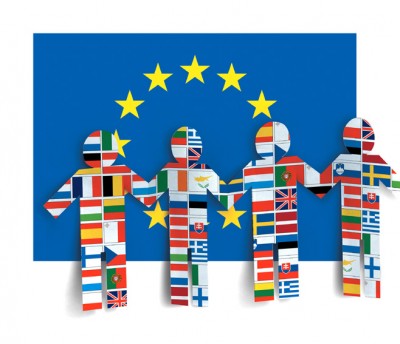Capping the Numbers: Curbing Immigration to Britannia. David Cameron in dire Straits

David Cameron finds himself in dire straits. There are impressions in a nervous Tory Party that the British prime minister is going soft in response to the firm stance taken by German Chancellor Angela Merkel to the school boy assertions of the Euro sceptics. The Tories, slaves to an intoxicating vision of past Britannic glory, cannot quite understand that any modern EU pact demands the principle of mobility without clips and clamps. Any admitted member has to abide by the principle, but Britain’s seat has always been an uncomfortable one.
The British Euro sceptics would prefer to evacuate that seat, and at least 200 Tory MPs have made murmurings and squeaks to the effect that they want an EU exit at some speed. What this has done is place Cameron in a situation which effectively sees only one policy in terms of dealing with the EU: the curbing of immigration.
The theme became all too clear in his Friday speech in the West Midlands. The task he had set himself was obvious and vulgar in its populism. Keep Tory voters happy; bring back dissatisfied voters from the UKIP camp, which threatens conservative hegemony in the country; and generally, right the ship in a firm manner against the wickedness of Brussels. (The latter is virtually impossible, and Cameron is finding himself in a policy cul-de-sac.)
Island mentalities tend to be padded ones – and that padding can tend to resemble the material used in a hermitic asylum. Apocalyptic predictions crowd the Tory frequency, even if Cameron said in 2011 that, ‘Immigrants make a huge contribution to Britain.’[1] Cameron has prevaricated on the subject, because he knows that playing with immigration as a way of back door spanking of Brussels’ functionaries is a dangerous game.
Caps have been suggested on incoming numbers, and he has mooted it as a possibility. An ‘emergency brake’ has also been suggested. Thus far, these have yet to find form, largely because the prime minister doesn’t want to find himself with less leg room in renegotiating Britain’s position within the EU.
Former Environment Secretary Owen Paterson is particularly attracted to the foodstuff of doom, wanting Cameron to act. ‘It’s quite clearly impossible for a country like ours to absorb 260,000 new immigrants net every year, it’s putting a terrible strain on public services and causing real social problems.’
Britannic exceptionalism is central to this presumption. ‘This is a real pressing problem. We cannot go into long, rambling negotiations with the European Union, particularly if they’re not going to play ball.’ It never occurs to Paterson that it is the British authorities, rather than those in Brussels, that do not want to play the proverbial ball.
The other aspect of peevish exceptionalism comes in the form of how much is actually being paid relative to what is being received by the State. Slanting the figures is everything in the desperate scrummage for votes. The thinktank Open Europe has found that Britain pays in the order of £5bn a year to 415,000 foreign nationals. Changes being proposed would reduce the income package of a person coming from Spain, to take one example, by 8 percent relative to home pay. In contrast, any sustained British recovery story requires immigrant labour to, as Katja Hall of the Confederation of British Industry explains, to keep ‘plugging skills shortages and allowing UK firms to grow.’[2]
Such sovereign pig headedness is being challenged by the European Commission, which is taking legal action against Britain regarding restrictions on migrant claims for child benefits and child tax credit in the country. Cameron sees these as undue exports and also insists that migrant workers be barred from claiming tax credits only after working four years in the UK. We want your labour, goes this rather uncharitable message, but not your very human claims. Such a confusion is evident in the comments of such conservative backbenchers as Nigel Mills, who claims that, ‘Free movement is about the right to work, not the right to claim benefits.’
But the value of labour is not distinct from its absence. When a person ceases to work or has fallen on hard times, the welfare buffer kicks in. Such a view is unduly holistic to the penny pinchers from White Hall to the Commons. Indeed, one of the Cameron proposals is to deport immigrants who have been jobless for six months. Productivity and old fashioned exploitation is fundamental.
The language of Simon Walker, director general of the Institute of Directors, is typically embracing of the labour without the labourer. ‘There is genuine disquiet about the pressure of schools and hospitals in many parts of the country. It is important that all immigrants come to the UK with a purpose and a willingness to contribute productively in the community.’[3]
Walker’s view sees labourers as shifting units of productivity, and services as abstract provisions. A consciousness of human agency is totally absent. Instead, he obsesses about a ‘single market in services and a digital economy’, the ill-informed TTIP trade relationship between Washington and the EU, and the irritations of EU social and employment policy.
If the court decision comes down against the recalcitrant British authorities, millions of fines may be levied. But the mortal risk will be to the Tories, who keep supping from the poisoned chalice of European union time and again, even as the illusion of British power persists with stubborn determination. Only such a mentality could explain why a country would actually build aircraft carriers without aircraft to supply them.
Dr. Binoy Kampmark was a Commonwealth Scholar at Selwyn College, Cambridge. He lectures at RMIT University, Melbourne. Email: [email protected]
Notes

